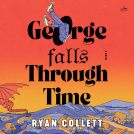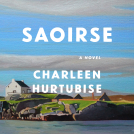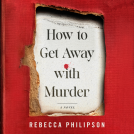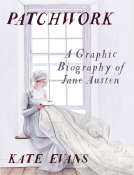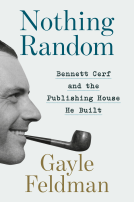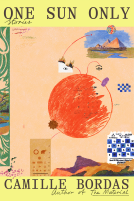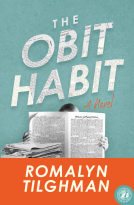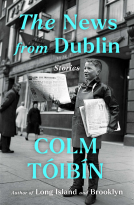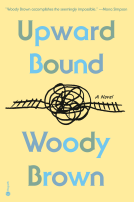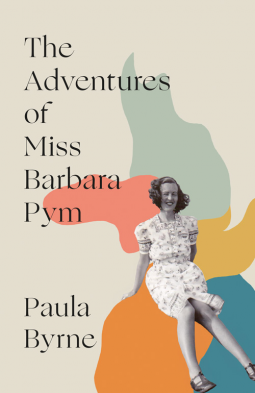
The Adventures of Miss Barbara Pym
by Paula Byrne
This title was previously available on NetGalley and is now archived.
Send NetGalley books directly to your Kindle or Kindle app
1
To read on a Kindle or Kindle app, please add kindle@netgalley.com as an approved email address to receive files in your Amazon account. Click here for step-by-step instructions.
2
Also find your Kindle email address within your Amazon account, and enter it here.
Pub Date Jun 07 2022 | Archive Date Jun 28 2022
Harper 360 | William Collins
Talking about this book? Use #TheAdventuresofMissBarbaraPym #NetGalley. More hashtag tips!
Description
Picked as a Book to Look Forward to in 2021 by the Guardian, The Times and the Observer
A Radio 4 Book of the Week, April 2021
Barbara Pym became beloved as one of the wittiest novelists of the late twentieth century, revealing the inner workings of domestic life so brilliantly that her friend Philip Larkin announced her the era’s own Jane Austen. But who was Barbara Pym and why was the life of this English writer – one of the greatest chroniclers of the human heart – so defined by rejection, both in her writing and in love?
Pym lived through extraordinary times. She attended Oxford in the thirties when women were the minority. She spent time in Nazi Germany, falling for a man who was close to Hitler. She made a career on the Home Front as a single working girl in London’s bedsit land. Through all of this, she wrote. Diaries, notes, letters, stories and more than a dozen novels – which as Byrne shows more often than not reflected the themes of Pym’s own experience: worlds of spinster sisters and academics in unrequited love, of powerful intimacies that pulled together seemingly humble lives.
Paula Byrne’s new biography is the first to make full use of Barbara Pym’s archive. Brimming with new extracts from Pym’s diaries, letters and novels, this book is a joyous introduction to a woman who was herself the very best of company.
Byrne brings Barbara Pym back to centre stage as one of the great English novelists: a generous, shrewdly perceptive writer and a brave woman, who only in the last years of her life was suddenly, resoundingly recognised for her genius.
Available Editions
| EDITION | Hardcover |
| ISBN | 9780008322205 |
| PRICE | $34.99 (USD) |
Average rating from 9 members
Featured Reviews
I had just finished an honors course on Jane Austen and graduated from university when I read an article on the most underrated writers. Barbara Pym was mentioned by two contributors. And that is how I came to read every one of Pym’s reissued and newly published novels. A number of my copies are first American hardbound editions.
I was excited to learn that Paula Byrne was writing a biography of Pym and when the galley became available quickly requested it. It was a joy to revisit Pym’s life and works.
It is shocking to consider that in the early 60s Pym’s publisher rejected her books as ‘cozy domestic comedies.’ Homosexuality was a crime until 1967, but Pym’s novels have gay characters. There are all kinds of ‘unsuitable attachments,’ women falling for younger men or gay men or married men. How did the publisher miss Pym’s biting satire?
Pym’s life was anything but conventional, a woman who loved deeply and unwisely.
She went to Oxford a mere twelve years after they first admitted female students. She immediately began obsessing over boys, stalking them and basically throwing herself at them. She was date raped and slept with a man who she knew didn’t value her. She met a gay man who became a dear lifetime friend. She traveled to Germany and fell in love with a man in the SS; it took a long while for her esteem for Nazism to be shaken. Early in WWII, she and her sister Hilary took in children evacuated from London. She joined the WRENS. She fell in love with a married man, a known philanderer. And, she fell in love with a younger gay man. She kept in touch with her old lovers and was distraught when dropped.
Pym’s novels are laugh out loud humorous. And they are poignant, exploring our penchant to allow our heart to fog our judgement. They were extremely autobiographical and based on people in her life.
I realized how so much of Pym’s picadilloes I had shared as a teenager. Stalking boys I liked as a teenager. Enjoying being in love with a boy who kept his distance, just needing to have someone to love.. Keeping a journal.
Byrne’s title comes from Pym’s diaries which were prefaced “The Adventures of Miss Pym,” and the chapters have lively titles like “Miss Pym attempts her First Novel. ‘Young Men in Fancy Dress,’ or ‘In which our Heroine goes to Germany for the third time and sleeps with her Nazi.’
And yes, Pym and a Nazi SS man fell in love and she perhaps could have married him. She sported a swastika pin. When she could no longer ignore the truth, she shut it all up and pretended it never happened. Although, she was glad to later learn that her Nazi didn’t approve of Nazi genocide.
Pym’s novels, published and unpublished, are discussed and it sent me back to my collection, opening books and revisiting them. I opened Some Tame Gazelle and found myself chuckling, wanting to waylay my husband and read it out loud.
I received a free egalley from the publisher through NetGalley. My review is fair and unbiased.
This was a very engrossing biography of an author I'm ashamed to say I'd never heard of before - Barbara Pym, sort of a Jane Austen of the 60s and 70s, with witty and deceptively complex books mostly centered on women, their home lives, their loves, their heartbreaks.
I admit I almost DNF'd because, in the beginning, I simply was not a fan of the author. At Oxford, she seemingly did little else but chase after men who did not want her other than to use her for sex and make her miserable. She did this over and over and over... then, we get to that whole startling period where she was enamored of Nazi Germany and even fell in love with a Nazi officer. I mean, nothing was making me like the woman. But I persisted...
I began to feel differently about her with the start of WW2 (and her realization that Nazis were not good people) and her taking her writing more seriously. Unfortunately, she was never really able to shake the habit of falling deeply in love with unsuitable men—as she got older, it was primarily gay men.
The biographer does a great job of getting the reader interested in Pym's novels, which have had a resurgence in popularity. For decades, she was considered stale and out-of-date as stories geared towards macho white men became all the rage (Ian Fleming, etc.) I now have quite a TBR of her novels I want to read and am really hoping they are in e-versions!
I hack off a star because for much of the book I was utterly confused as to whether she was being published or not. The author described book after book - their plots, characters, details - so I assumed they were being published but if so couldn't understand why there was no information on how it happened. I had to Google to find out many of her books were published in the late 70s.
If you like to read about authors (I do) or you're a Pym fan, this is a must-read.
Thank you to #NetGalley, Paula Byrne, and the publisher for an ARC in exchange for an honest review.
 Cynthia W, Reviewer
Cynthia W, Reviewer
I discovered the wonderful books of Barbara Pym when I was in my twenties and I've been a big fan every since. So, of course, I jumped at the chance to read this biography of Pym. I enjoyed this book very much. The first third (or so) of the book covered Pym's college years and I thought it might have gone into too much detail. I didn't really need to read every journal entry about every date, every kiss, every romantic set-back, etc. (Interesting though that a world-class writer was just a silly girl in college - like most of us were.) However, the book really hit its stride for me when Byrne starts analyzing the novels. She was brilliantly insightful and made me want to immediately read the few I've missed and reread my favorites. She does tie back the characters and plots to Pym's early life, so I can understand why the early-life detail may have been necessary.
If you aren't familiar with Pym, please read her! I especially love "Excellent Women."
 Janet P, Reviewer
Janet P, Reviewer
This book has taped the perfect recipe for literary biography, combining biography and background on how Pym's novels were written, with descriptions and analysis of each book. This is all helped by extensive research combined with a winning style. it's a great biography & I hope it wins new readers to Pym.
 EMILY L, Reviewer
EMILY L, Reviewer
I recognized the name of novelist Barbara Pym and believed I had read one of her books … but I realized a few chapters into this thoughtful and entertaining biography that I had the wrong "Barbara." I stopped reading the biography, went to an online lending library and read Pym's "Excellent Women" and "Crampton Hodnet," one recognized as a very important book in her lifetime, the other published posthumously. Turns out they had some similarities beyond just her style. I NEEDED to read her before finishing this biography. But I digress: Those reviews are elsewhere on my blog.
Barbara Pym was an observer of the smallest details of human behavior and the inner thoughts/motivations that lead to such behavior. From the beginning, this well researched but never pedantic biography draws a picture of a fascinating but odd and often obsessive young woman, whose past contributed to the very interesting writer she became. Pym, at St. Hilda's College in Oxford, tended to stalk men she had a crush on, often without ever meeting them but at times, and more disastrously, engaging in unfortunate and devastating relationships with some of them. This tendency toward problematic relationships with men happened repeatedly into her fifties.
Her "stalking" interesting people revived at least at one point later in her life and she roped in her sister and friends to the escapade and ultimately befriended the stalkees, men who were homosexual lovers at a time this was a crime in Great Britain. Pym's journals, which she faithfully wrote off and on throughout her life, demonstrate how deeply she thought about and understood herself and others and why her observational fiction is just so good. While she destroyed related letters, Pym in her early twenties was attracted to Naziism, which she should have renounced way sooner than she did. She spent time in Germany, mastered the language, wore a swastika brooch and dated an SS guy who was close to Hitler. I had to keep going in hopes she would not stay someone so unlikeable! Fortunately, she did renounce Nazism and Hitler and Germany, participating in numerous volunteer activities in Great Britain and ultimately joining the Wrens. Her knowledge of German made her a good censor for the government.
Pym formed life-long friendships, many involving copious correspondence. She never married. Byrne focuses primarily on her male relationships, but also on some of Pym's female friendships here and there. She was funny as anything in her writing, but often reserved in her social interactions, except with friends and children. She had tendency to include, as her characters, her closest friends, ex-lovers and herself.Byrne does a wonderful job juxtaposing quotes from Pym's journals and letters and then from her novels, showing how she incorporated these friends into her work, sometimes creating rather unlikeable caricatures while retaining the friendships.
Publishers stopped publishing her in the early 1960s, finding her quaint and irrelevant. Still, loyal fans reread her books for the next fifteen-plus years but as she remained absent from the literary scene. Incredibly, in 1977, long after Pym had resigned herself to writing only for herself, The London Times Literary Supplement solicited from writers a list of the most "underrated" and "overrated" writers of the past 75 years. Two separate people, one a great friend and believer in Pym and one who did not know her personally included Pym's name on the "underrated" list, making her the sole person whose name showed up twice. Her audience expanded and revived and she was published once more and republished. Which was such a gift to her and to all of us because she has not gone out of publication since and I plan to read them all. It's also a gift that she lived to experience this great success and to publish two more books before she passed away in early 1980.
This is a frank, well organized, vivid story of a woman who was ahead of her time when it came to having friends (and characters) who were gay, having lovers at a time it was not okay for women of her class or any single women, who could take small, small parts of a neighborhood/village and its residents and make every one of us relate to what she saw under the microscope. During her life, Pym was at times shocking and her choices incomprehensible-- a person standing on a railroad track as the train barreled toward her. But, ultimately, this is a story of a captivating persona, a likable and accomplished woman and a life well-lived. Highly recommend!
